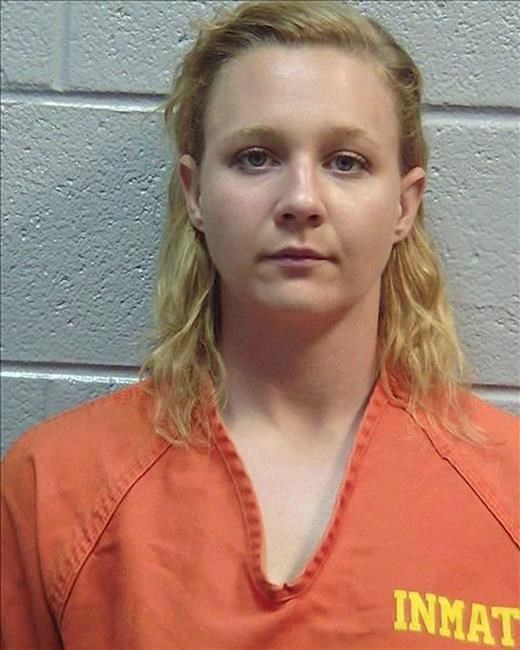
File - This June 2017 file photo released by the Lincoln County, Ga., Sheriff's Office, shows Reality Winner. A judge is weighing whether to suppress the statement of Winner accused of leaking National Security Agency secrets because federal agents did not warn her that she could have a lawyer and her words might be used against her. The Augusta Chronicle reported that Winner admitted in the recorded statement that she mailed a classified document to The Intercept, an online news outlet. Parts of the recording were played in federal court on Tuesday, Feb. 27, 2018. (Lincoln County Sheriff's Office via AP, File)
Republished February 28, 2018 - 6:55 AM
Original Publication Date February 28, 2018 - 4:26 AM
AUGUSTA, Ga. - A judge is weighing whether to suppress the statement of a woman accused of leaking National Security Agency secrets because federal agents did not warn her that her words might be used against her and that she could wait for a lawyer.
Reality Winner, 25, admitted in the recorded statement that she smuggled a classified document out of her office and mailed it to The Intercept, an online news outlet. The Augusta Chronicle covered Tuesday's hearing, and reports that parts of the recording were played in court.
Winner, who worked for the national security contractor Pluribus International at Fort Gordon in Georgia, has pleaded not guilty to violating the federal Espionage Act by leaking an NSA report about Russian interference in the 2016 U.S. elections.
Defence attorney Matthew Chester says the statement should be suppressed because federal agents intentionally chose not to read Winner her Miranda rights out of fear that she would not talk if they did. "The law says you don't get to do that," Chester said.
Miranda rights apply when a suspect is under arrest. FBI Special Agent Justin Garrick contends that Winner should remain held without bond as a menace to national security and a flight risk, but he said the 11 agents who came to search Winner's home on June 3 had no intention of holding her against her will until she willingly gave them probable cause to arrest her.
Assistant U.S. Attorney Jennifer Solari said everything the agents did that day proves she was not under arrest until after she gave her statement. She said the agents were not outfitted in FBI gear, never displayed weapons, and no one touched or intimidated her in any way.
But under cross-examination, Garrick acknowledged that Winner made the incriminating statement after agents showed her a warrant to search her body, and that all the agents at the scene were men. He also acknowledged that he never told her she was free to leave, or that she didn't need to repeatedly ask permission to move around within her home.
Winner's attorney said no reasonable person in Winner's situation would believe she was free to leave without answering the FBI's questions. The prosecutor countered that the Supreme Court has held that controlling a suspect's movements during the execution of a search warrant doesn't mean the person is in custody, and there was no nefarious plan to withhold the Miranda warning.
Magistrate Brian K. Epps gave both sides three weeks to file briefs before he rules, which means it's doubtful Winner's trial will begin as scheduled on March 19.
___
Information from: The Augusta Chronicle , http://www.augustachronicle.com
News from © The Associated Press, 2018